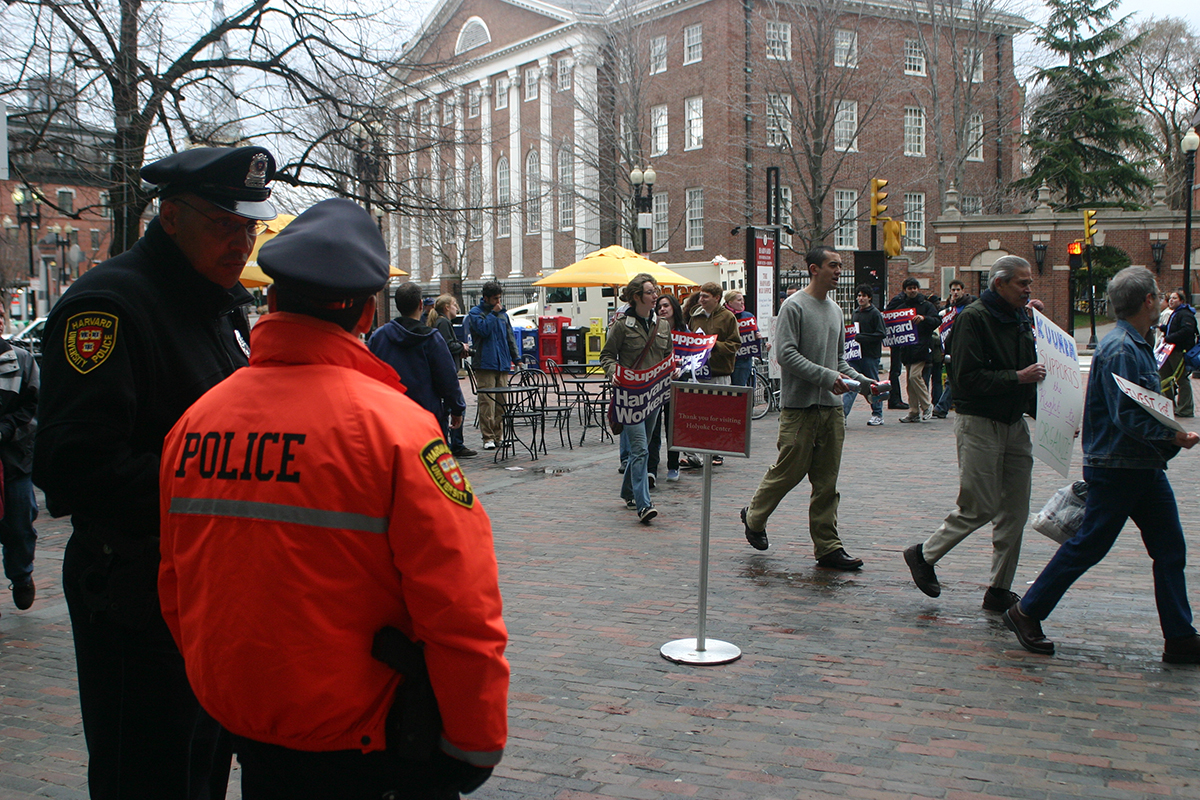University Police Departments in Massachusetts Still Shrouded in Secrecy

Photo by redjar on Flickr/Creative Commons
To dismiss university police as merely stern-faced Allston party-busters is to grossly underestimate both their size and the scope of their powers. Harvard University, for example, employs 77 sworn officers, whose patrol stretches from the Yard to the business school in Allston, to the medical school in Longwood. Deemed “special state police officers,” they are granted the same power to arrest under Massachusetts General Law as provided public police departments.
Because these sworn officers are employed by private entities, however, they are immune to the state’s public records law, even if there’s public benefit to some records being released. For obvious reasons, that’s a problem.
MuckRock reporter Shawn Musgrave examined the legal requirements for disclosure placed on 21 colleges in the Greater Boston area, and found a widespread, glaring lack of compliance. Though the federal Clery Act requires all colleges and universities receiving federal financial assistance to publish a daily crime log accessible to the public, only Harvard and MIT post their crime logs online, while 10 schools refused to share their daily logs via email. Some schools, like Wentworth Institute of Technology, only share their logs in person.
Though Boston University police chief Thomas Robbins set the standard for special state police disclosure requirements during his two years as Colonel of the Massachusetts State Police, BUPD “did not respond to inquiries as to why its crime logs may be viewed in digital format on-site but not provided by email,” Musgrave reports.
There’s hope. A bill filed State Rep. Kevin Honan of Brighton would add special state police officers to the list of entities subject to the state public records statute. It is uncertain whether the Legislature will vote on the bill, which has languished in committee, this session.
You can read more of Musgrave’s comprehensive report on MuckRock.

